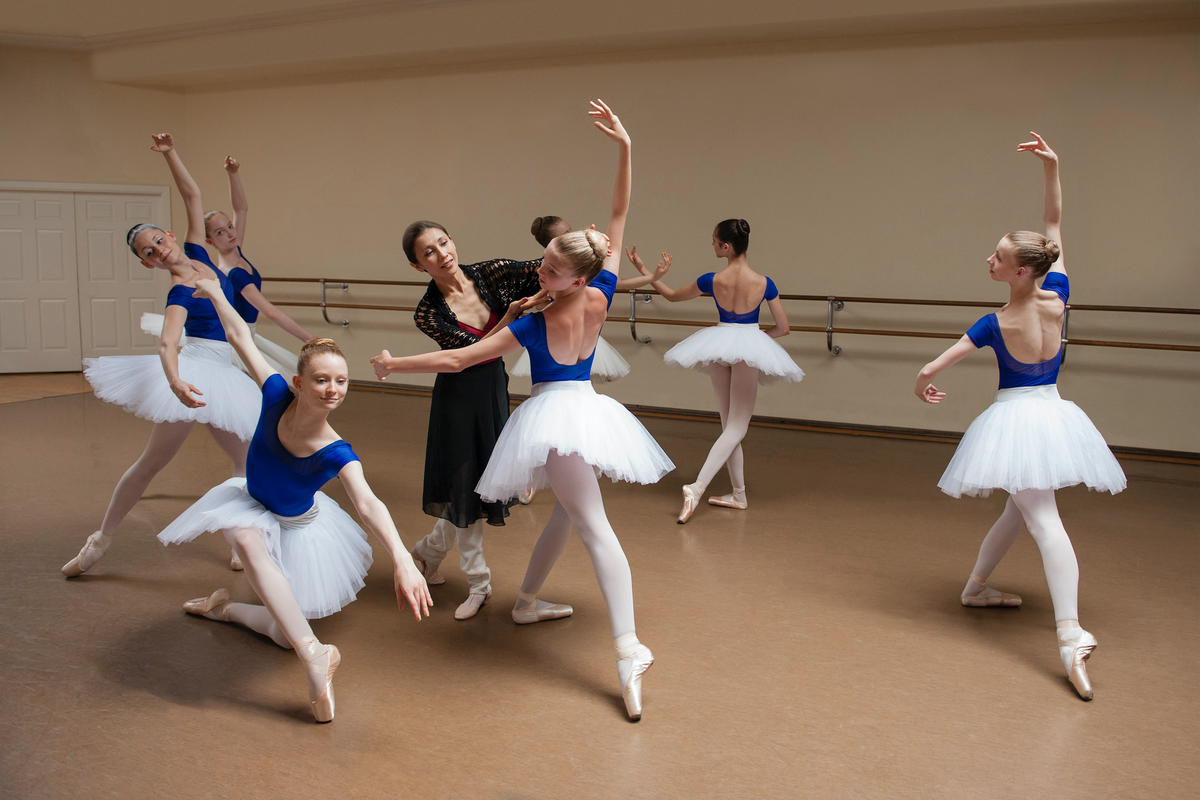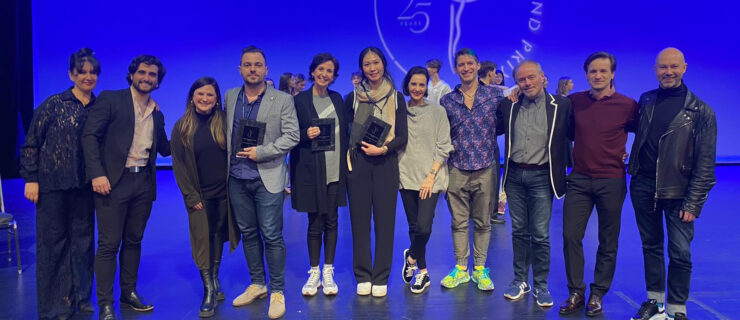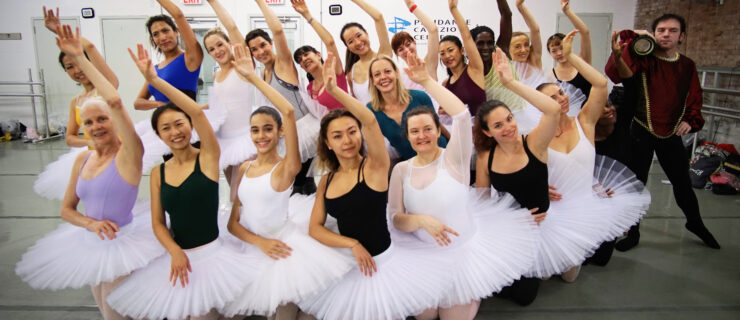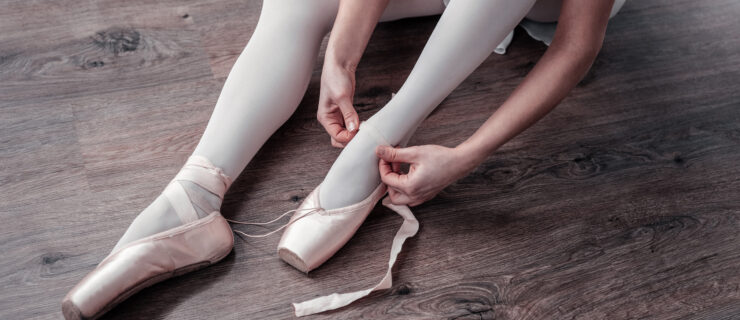Pre-Pro Priorities: The Top Skills to Focus on During Your Final Training Years
As told to Rachel Caldwell
Finding the right pre-professional training program can be daunting. Then once you’re there, what should you focus on in order to succeed? To shine some light on the topic, we talked to five leading teachers and directors who have seen scores of students move on to flourishing ballet careers. Here’s what they suggested for young dancers on the pre-professional track.
Chan Hon Goh, Director Goh Ballet
 “Prioritize artistic interpretation and musicality.” —Chan Hon Goh. David Cooper, Courtesy Goh Academy
“Prioritize artistic interpretation and musicality.” —Chan Hon Goh. David Cooper, Courtesy Goh Academy
When choosing where to train, think about what your career objectives are. Do your research and look for a program that is well-rounded and has a proven track record of producing dancers that have gone on to a variety of companies. There’s an abundance of schools and information out there, so it can be quite baffling—everyone mentions similar things to entice students to join their programs. Refer back to the school’s track record, as well as what opportunities will be offered to you during the course of the next several years. Looking at the backgrounds of the teachers and the director is also immensely valuable—that information is usually readily available on organizations’ websites.
If you know you want to explore a career in classical ballet, make sure you get enough of a technical buildup. Prioritize artistic interpretation and musicality. In a world where we’re easily impressed by how high the leg is and how many turns one can do, we sometimes fail to see the artistry: the artistic interpretation of a story or a character, and how to bring that character to life. That will add to your dancing immensely.
Alfonso Martin, Artistic Manager and Ballet Master, Tulsa Ballet II
 “Give your body the best fuel and care it needs to dance again the next day.” —Alfonso Martin. Bethany Kirby, Courtesy Tulsa Ballet
“Give your body the best fuel and care it needs to dance again the next day.” —Alfonso Martin. Bethany Kirby, Courtesy Tulsa Ballet
First, know what type of dancer you are and what you see yourself dancing. Focus on training that will get you to where you’d like to end up, career-wise. There’s a great pool of companies out there, so everybody can find their place.
Nowadays, most companies look for artists who can dance everything. Find the most complete pre-professional training possible—training that offers classes not only in classical ballet, but contemporary ballet, repertory, nutrition and physical conditioning, and that has performance opportunities.
Take care of your body. Dancers often forget to make the most of their time after a full day of classes, rehearsals and performances. It’s so important to give your body the best fuel and care it needs to dance again the next day.
Remember that a dance career is a marathon, not a 100-meter race—every day will be different. Set daily goals, try your best and learn as much as you can from everyone around you. There is always something to learn, and you never know who or what will make a difference in your dancing.
Melissa Allen Bowman, Director Houston Ballet Academy
 “Be open to new ideas and ways of learning.” —Melissa Allen Bowman. Amitava Sarkar, Courtesy Houston Ballet
“Be open to new ideas and ways of learning.” —Melissa Allen Bowman. Amitava Sarkar, Courtesy Houston Ballet
Nowadays you need to be as versatile and informed as possible. Learn as much as you can about different styles, from classical to contemporary. Absorb what you can from each experience and teacher so that you can see what works for you and build on it. Not everything is going to be a perfect fit, and that’s okay.
Being able to adapt to different styles and techniques and work with a variety of choreographers will take you far. I find that a lot of dancers come in with preconceived notions, and it’s hard for them to take in what they’re learning and work with it. Immersing yourself in one technique when you’re young sets a strong base, but as you get older it’s important to be open to new ideas and ways of learning. It helps you to become a better, well-rounded dancer and more comfortable and confident as an artist.
I often see students fall short because they don’t understand something but are too embarrassed to ask questions or are afraid to fail. But that is how you learn.
Victoria Schneider, Ballet Faculty The Harid Conservatory
 “Look for a program that offers various dance forms, not just ballet.” —Victoria Schneider. Mariana Raya, Courtesy Harid Conservatory
“Look for a program that offers various dance forms, not just ballet.” —Victoria Schneider. Mariana Raya, Courtesy Harid Conservatory
Each school will have its own selection criteria; you won’t be accepted into every institution, but that doesn’t mean you won’t have a professional career. Remain open-minded. A “no” in one place is not necessarily a “no” in your life.
Look for a program that offers various dance forms, not just ballet. I do believe that students should study one particular ballet technique at a time, not mix techniques. I think that working with one teacher consistently is much more productive than switching teachers on a daily basis.
Use your pre-professional years to gain an understanding of how the entire body coordinates together, rather than just focusing on legs and feet. The upper body must be equally developed with the lower body. Also, musicality! Finding musical training will be to your advantage. Artistry, musicality and the mechanics of movement all go hand in hand.
The best preparation for pre-professional training is learning independence. It starts with sewing your own shoes, packing your dance bag every day, being responsible, getting yourself back and forth from ballet class, if possible. It’s important to develop as a whole human being.
Michael Vernon, Chair Emeritus Indiana University Ballet Department
 “Learn how to work on your weaknesses, not just your strengths.” —Michael Vernon. Christophe Buszkiewicz, Courtesy Vernon
“Learn how to work on your weaknesses, not just your strengths.” —Michael Vernon. Christophe Buszkiewicz, Courtesy Vernon
College dance programs today are really different than what they were 10 and 20 years ago—they offer really good pre-professional training. When deciding on a program, research the faculty. Not having heard a teacher’s name before doesn’t say anything about the standard of their teaching, so really look into their backgrounds.
Wherever you decide to go, performing should be a very important part of the curriculum—not just the amount of performance opportunities, but the repertoire that’s offered and the style of the company the school feeds into. Through performing, dancers also learn how to be part of a team, because that’s what it’s like in a company.
It’s also vital that a dancer learn to take corrections very objectively and to be open to suggestions. Learn to take care of your health. These aspects are becoming more and more important as the demands of choreography become more challenging. Learn how to work on your weaknesses, not just your strengths. Become aware of yourself, because everyone has weaknesses, even the greatest dancers.
Tip: “A lot of dancers use summer programs as a way to choose a school,” says Vernon. “Directors also use them to scout talent, so an intensive can be a great way to make an introduction”





